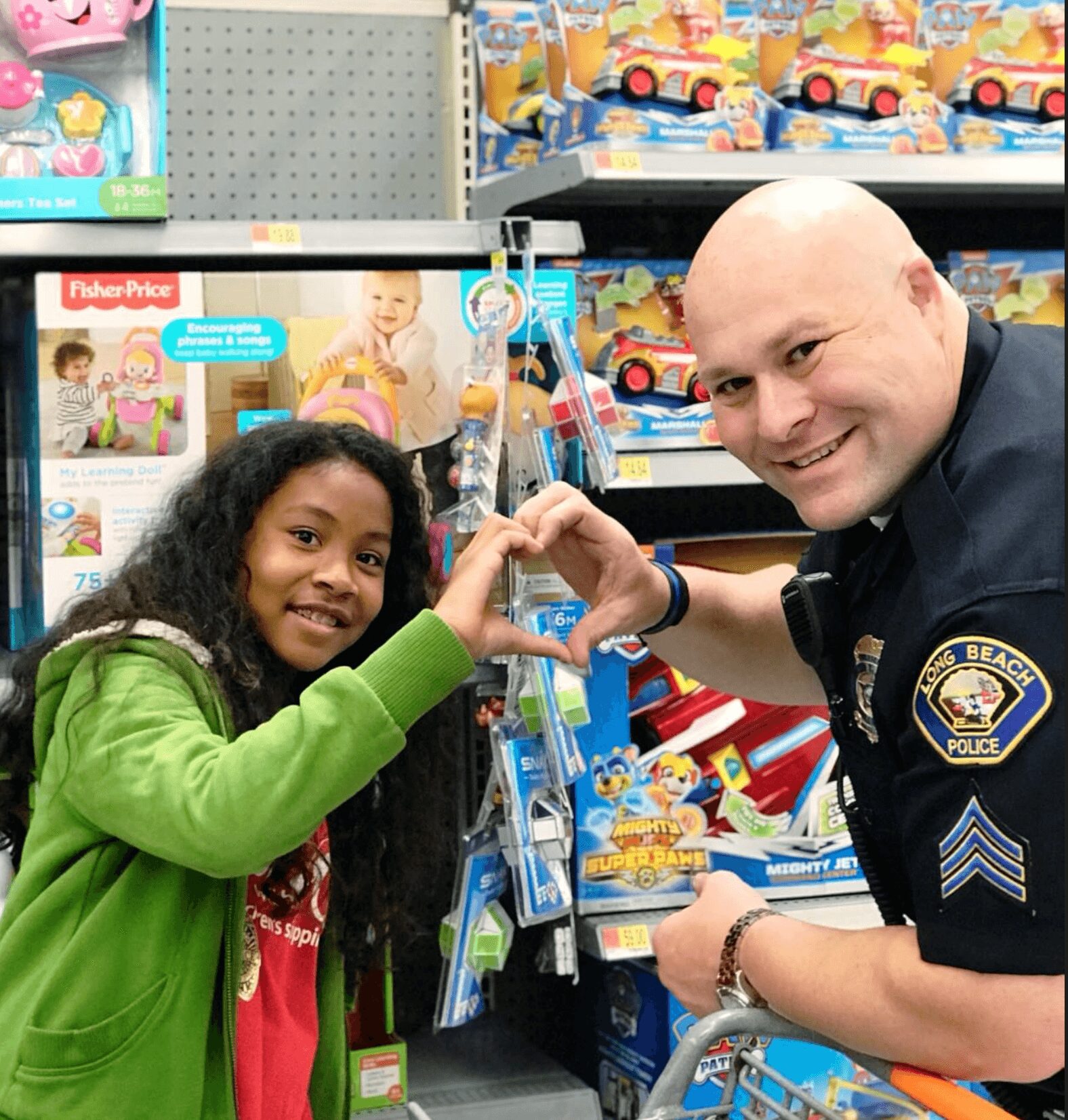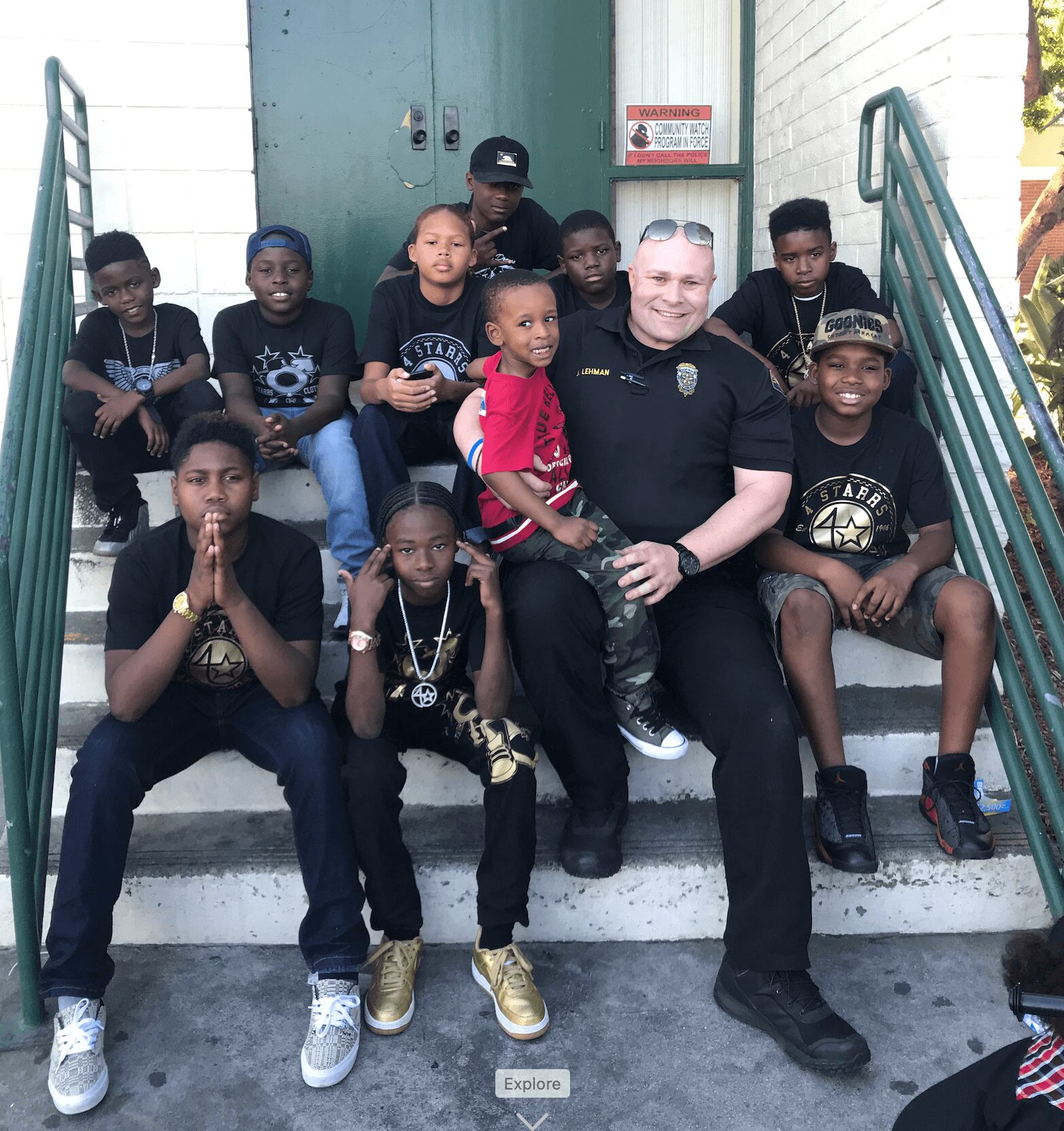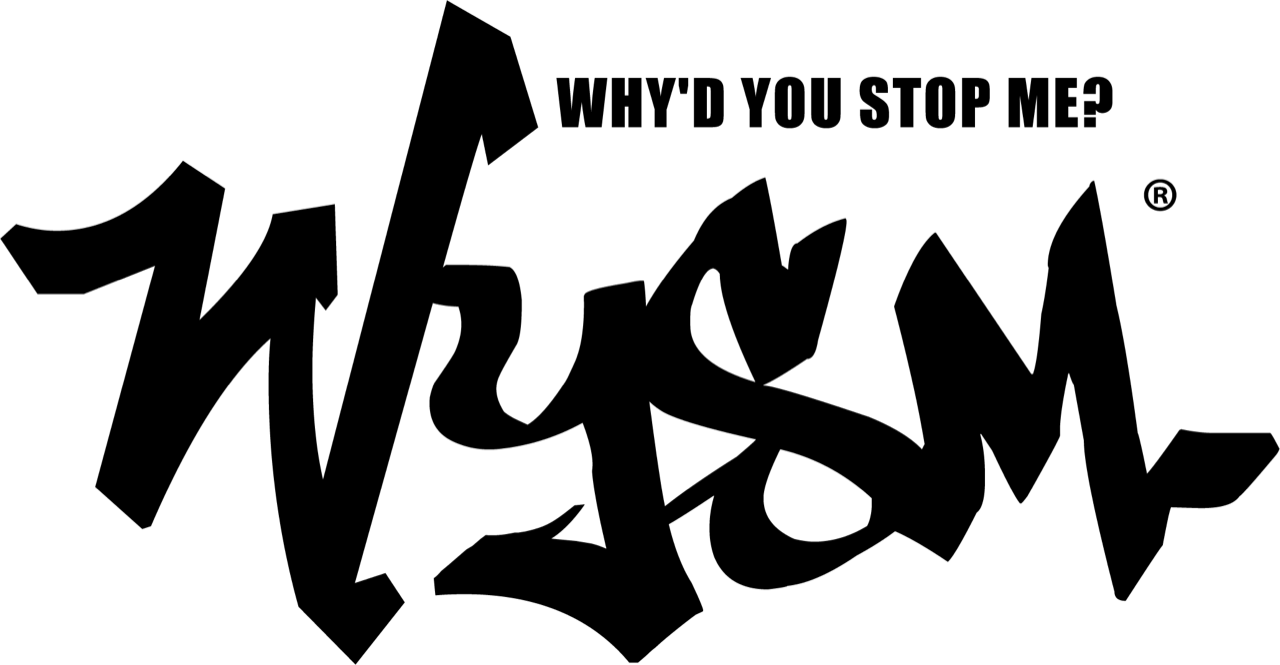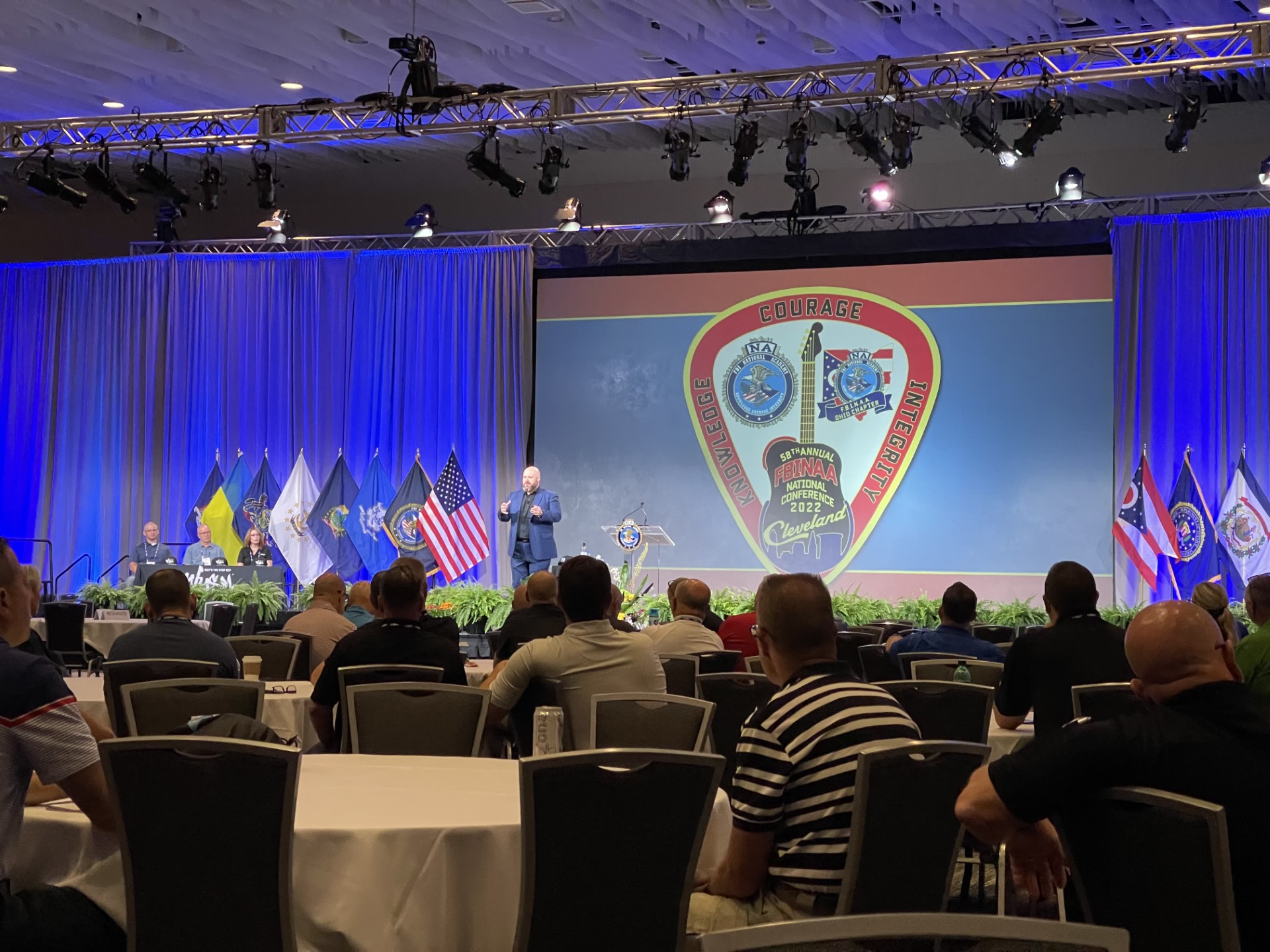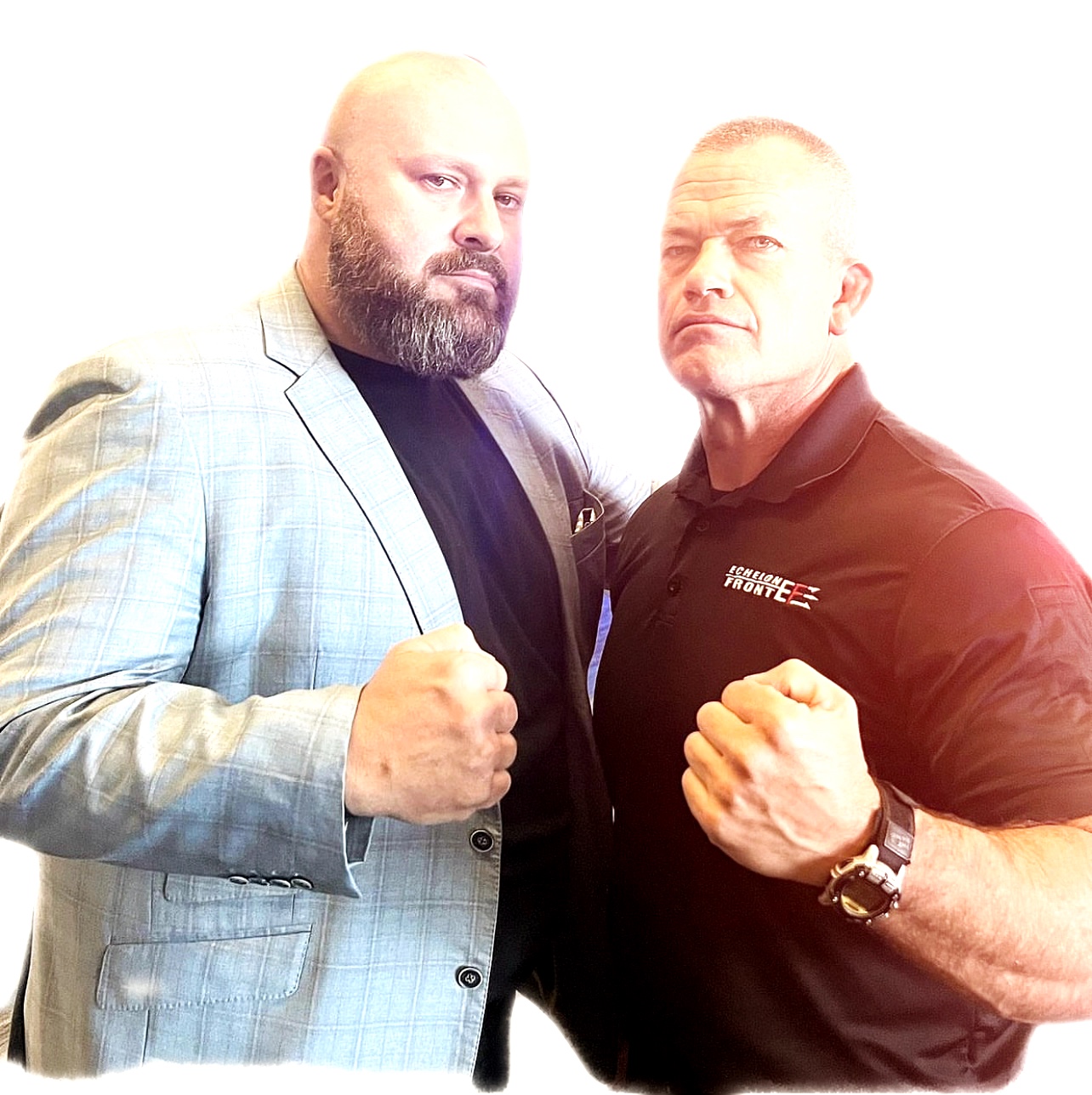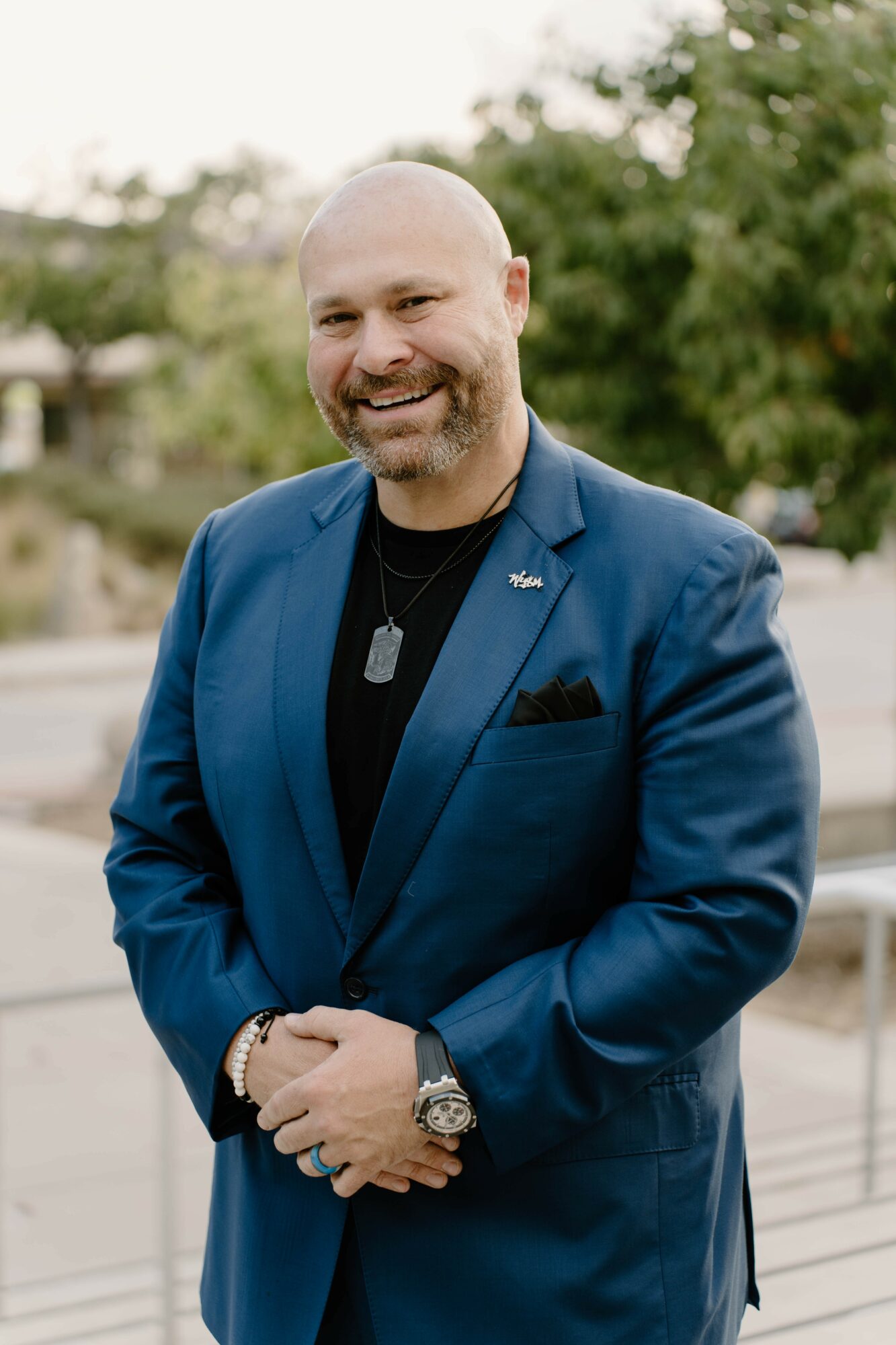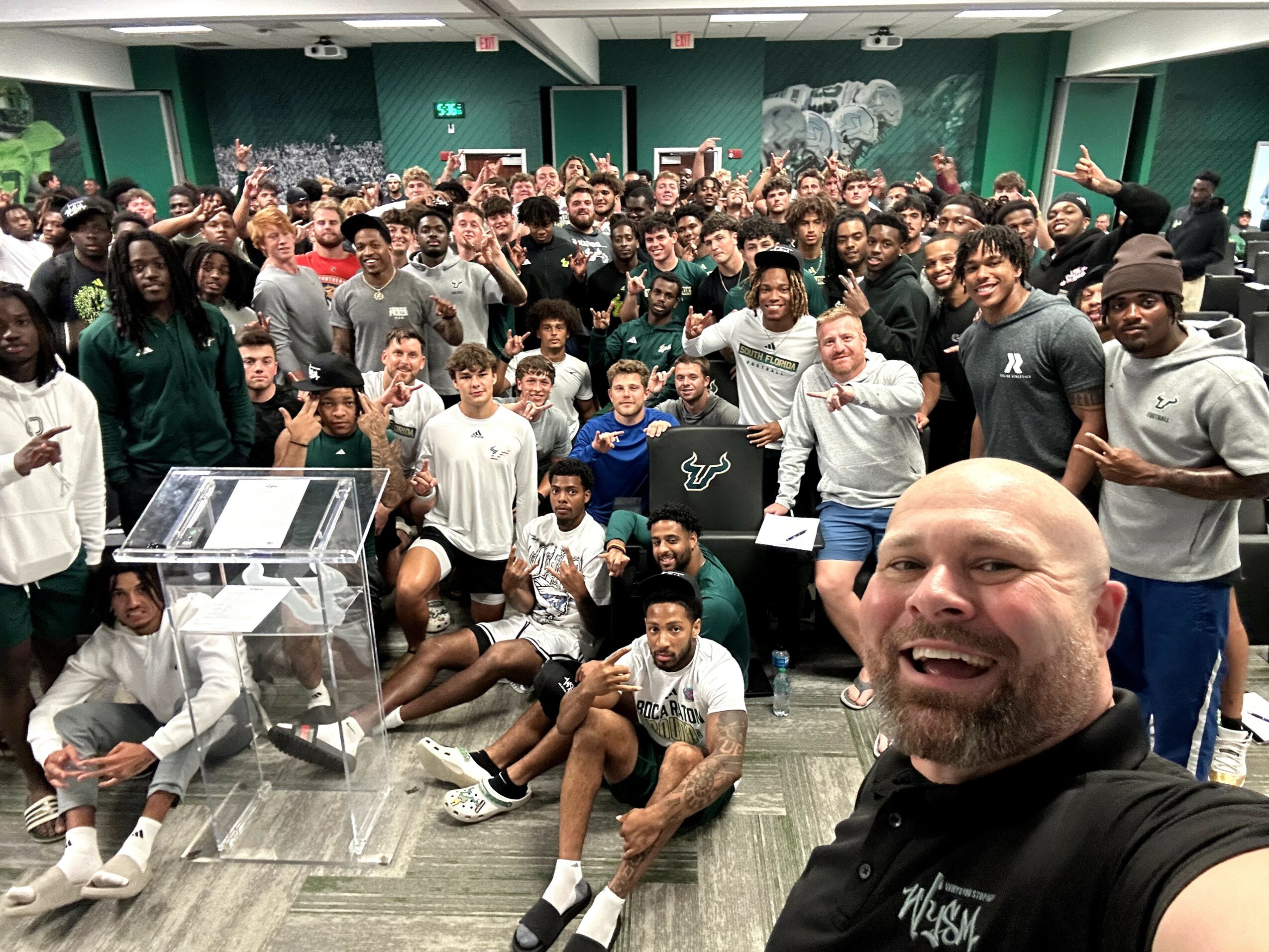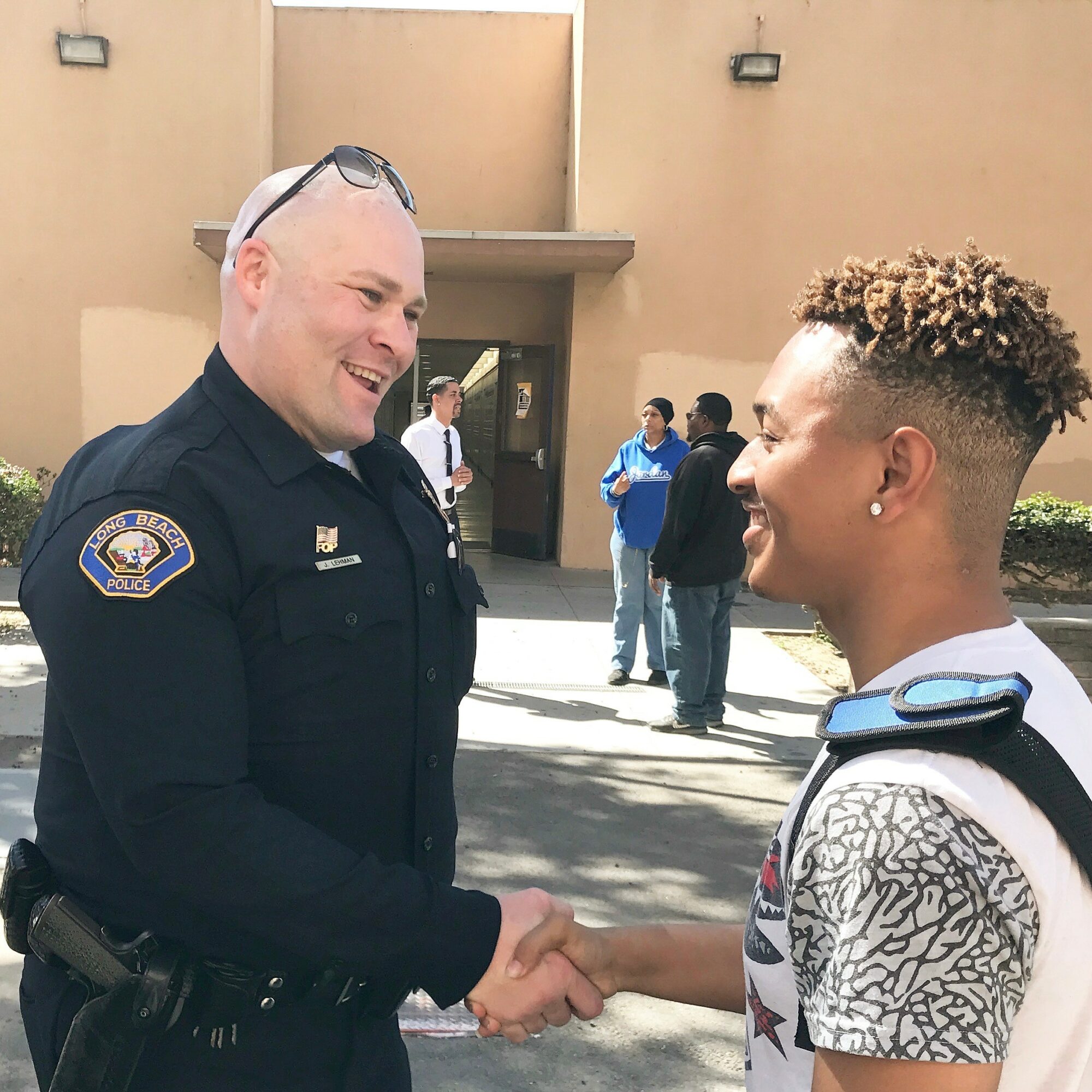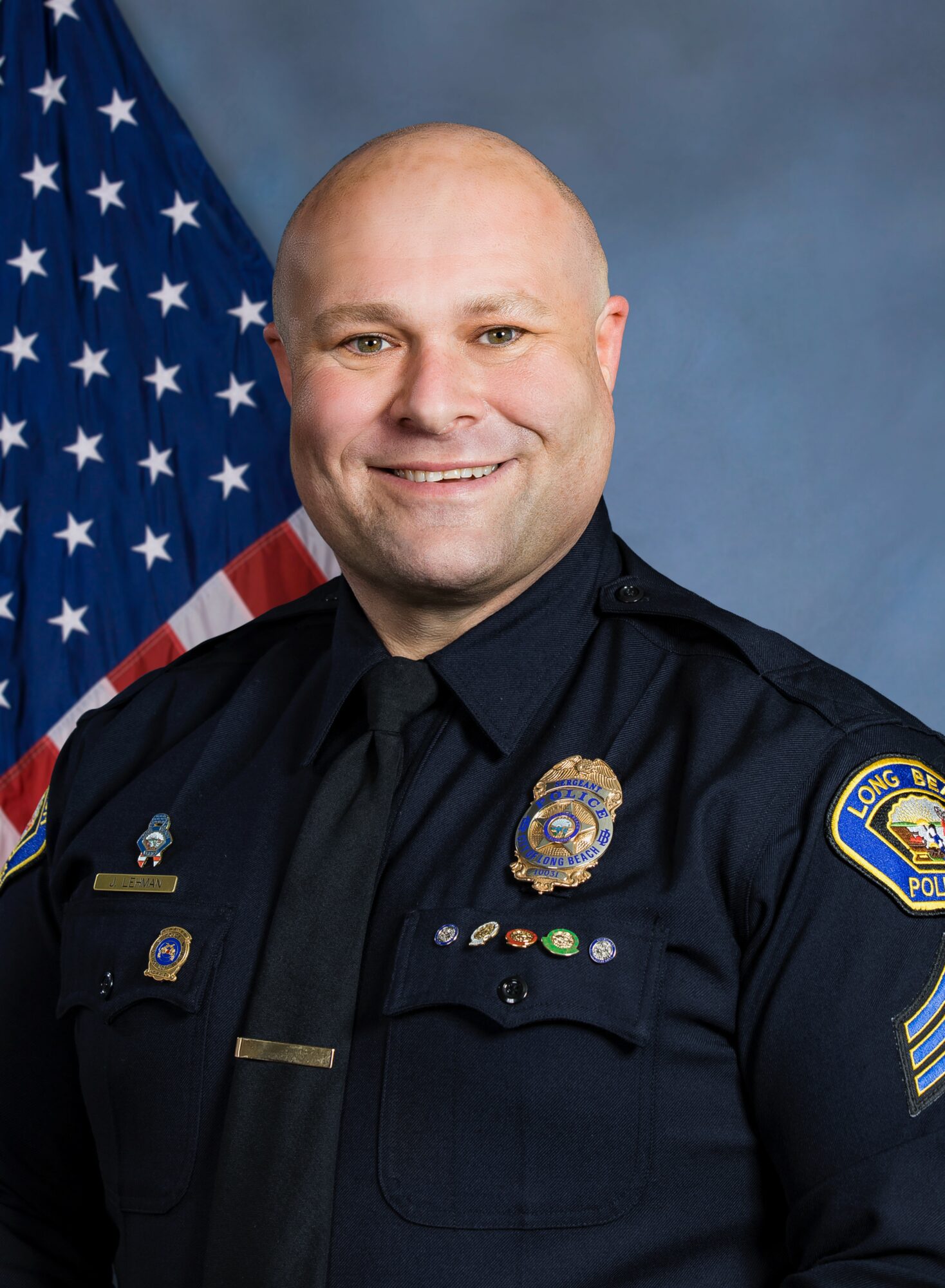

Today we’d like to introduce you to Jason Lehman.
Hi Jason, we’d love for you to start by introducing yourself.
Growing up in New York City, my first real interactions with police weren’t positive—they were personal. I didn’t learn about law enforcement from textbooks or community tours. I learned because I was treated like a suspect. Thankfully, my mother made a life-changing decision to move us to California, pulling me away from the street-level influences that were beginning to shape my future. But by then, some damage had already been done. I’d had a couple of negative run-ins with the NYPD, and at that point, the idea of becoming a cop wasn’t just far-fetched—it was laughable.
My plan was football. I was strong, determined, and saw the game not as a way out of poverty or the hood, but as a way out of something just as dangerous—mediocrity, failure, and trouble. I played for the University of South Florida and left with a degree and a dream of going pro. But when those dreams didn’t materialize, I came back to California like so many young men do when the first plan falls apart—asking myself: What now?
In 2006, I put on a police uniform for the Long Beach Police Department. I joined with a genuine desire to serve and protect. But the reality I stepped into wasn’t so clear-cut. Some of the officers I admired—those I thought were “getting it done”—operated in the grey. And between 2006 and 2009, I found myself slipping into that same mindset.
Most of the time—99 out of 100—I did the right thing. But that one out of 100? That’s the one I carry with me. Those were the moments when I acted out of frustration, fear, or ego. Moments when I hurt people who didn’t need to be hurt. And why? Because hurt people hurt people. Beneath the badge, beneath the strong frame of a former football player, was a hurt little boy—wounded and unhealed—and that pain bled into my work.
Eventually, it caught up with me. I was suspended for misconduct. I let down my peers, my department, and my community. I was ashamed, and for a moment, I thought it was all over.
Then came the moment that changed everything. Sitting across from my deputy chief, I heard the words that shifted my life: “You need to change, and you need to change now.” And I did.
I recommitted—first to myself, then to my community, and finally to a new kind of policing. I decided to stop cutting corners and start doing it right—100 out of 100 times. I embraced the pillars of procedural justice: voice, neutrality, respect, and trust. I stopped seeking to win and started seeking to understand. I began looking for opportunity instead of opposition. And with that mindset shift came a new mission.
That mission became Why’d You Stop Me? (WYSM)—a nonprofit born not out of perfection, but out of pain. WYSM is my way of making things right—equipping both officers and the communities they serve with tools for empowerment, understanding, and conflict resolution. Since 2012, I’ve had the honor of training over 250,000 leaders across the country—first responders, educators, corporate teams, and young people—helping them shift from duty to desire, from fear to understanding.
Today, I work with organizations like California POST, the NAACP, and the Department of Justice to help redefine 21st-century leadership. I’ve been recognized for heroism, innovation, and community impact—but none of that compares to watching someone have the same breakthrough I did.
So… what got me here? A tough childhood. Hard mistakes. A suspension that nearly ended everything. A conversation that saved it. And an unwavering belief that people can change—and that changed people can change the world.
Can you talk to us a bit about the challenges and lessons you’ve learned along the way. Looking back would you say it’s been easy or smooth in retrospect?
Throughout my life, I’ve faced a series of internal and external struggles that shaped who I am today—some that nearly broke me, and others that forced me to grow.
As a young man growing up in New York City, I was already struggling with identity and direction. I was drawn to the spotlight. I wanted to be the cool kid—the one everyone noticed, the one people admired. I thought attention equaled value. Whether it was on the field, in a group of friends, or later in the profession of law enforcement, I chased validation. But looking back, I see that I was feeding my ego, not my purpose.
Even when I found some success—on the football field at the University of South Florida or later wearing the badge—I was still driven by an unhealthy need to prove myself. I equated status with worth. And that mindset made it easy to justify certain behaviors, especially when I entered law enforcement. I was trained by a few who believed in results over integrity, and in my desire to be accepted, respected, and “effective,” I adopted some of that same thinking.
But here’s the truth: that spotlight I craved early on became blinding. It led me to compromise who I was at my core. I hurt people who didn’t need to be hurt. I justified it under the badge. But deep down, I knew I was betraying not only the community—I was betraying myself.
The biggest struggle wasn’t just the suspension or the shame that followed—it was realizing that I had spent so much of my life trying to impress others, while quietly disappointing myself.
That’s when everything changed. I had to strip away the identity I had built around ego and image and rebuild it around service and humility. I had to let go of being “the cool kid” and commit to being the right man—a protector, a leader, a bridge-builder.
Now, every day, I try to earn back the trust I once lost—starting with the person in the mirror. My focus is no longer on being in the spotlight. My focus is on shining a light for others. And in doing so, I’ve discovered a version of myself far more powerful than the one I was trying to play.
Appreciate you sharing that. What else should we know about what you do?
What do you do, what do you specialize in, what are you known for, and what sets you apart?
I’m a police sergeant, nonprofit founder, and national speaker who specializes in turning pain into purpose—both my own and that of the people I train. I founded Why’d You Stop Me? (WYSM), a nationally endorsed nonprofit that bridges the gap between law enforcement and the communities we serve. Our mission is to empower both protectors and the public with tools to communicate better, reduce violence, and build trust—especially during high-stress moments that too often lead to tragedy.
I’m most known for bringing vulnerability and truth into spaces that don’t often allow for either—law enforcement briefings, boardrooms, classrooms, and community forums. I specialize in what I call ethical leadership through emotional intelligence. I help officers move from acting out of duty to leading with desire—from seeing opposition to seeing opportunity. I also help community members understand how to advocate for themselves in a way that promotes both safety and mutual respect.
What am I most proud of?
In my personal life, I am most proud of the opportunity to be a family man, honored to raise two children and proud to be a husband to my beautiful, smart, and caring wife. In my professional life, I’m most proud of the fact that WYSM wasn’t born from success—it was born from failure. I created the organization after facing a suspension for misconduct that nearly ended my career. But instead of letting that failure define me, I used it as fuel to become someone better. Since 2012, I’ve trained more than 250,000 people—officers, students, corporate teams, and young men who remind me of the path I once walked. I have taken WYSM from a concept to a corporation dedicated to service over self.
What sets me apart from others?
What sets me apart is that I’ve lived on both sides of the badge. I grew up in New York City being stopped by police. I later became one. I’ve been the suspect, the enforcer, the broken man, and the leader searching for redemption. My approach isn’t built on theory—it’s built on experience. I don’t speak from a pedestal; I speak from a place of pain, growth, and transformation. I don’t teach perfection—I teach practice: practicing fairness, practicing service, and leading with humility rather than ego.
And what makes this work even more meaningful is the power of partnerships. I’ve had the distinct honor of collaborating with extraordinary organizations that are committed to transformational change, including the Echelon Front Leadership Consultancy, the Lexipol Corporation, the NAACP, The New York Post, and countless other local, state, and national partners. These alliances remind me daily that we don’t change systems alone—we do it together.
At the end of the day, I’m not here to chase the spotlight. I’m here to shine a light for others—especially for those who need to know that change is possible, and that redemption is real.
Do you have any advice for those just starting out?
If you’re just starting out—whether in law enforcement, leadership, or life—my biggest piece of advice is this: Do the internal work first. Before you focus on earning respect, recognition, or rank, make sure you’ve looked in the mirror and dealt with the parts of you that are still hurting.
When I began my career in law enforcement, I was strong on the outside but broken on the inside. I wanted to be the one others looked up to—the cool kid, the hero, the one in the spotlight. But I now realize I was chasing applause instead of alignment. I was feeding my ego when I should have been feeding my purpose. And that came at a cost—not just to me, but to others.
I wish I had known earlier that leadership isn’t about how many people listen to you—it’s about how well you listen to them. I wish I had understood that you can’t serve others until you’ve learned to serve with humility. And I wish I had known that making mistakes doesn’t disqualify you—it just means you’ve got work to do.
So my advice is this: Lead with empathy and compassion. Be coachable and humble. Ask for help. And don’t be afraid to admit when you’re wrong. Growth doesn’t come from getting it right every time—it comes from having the courage to do it better the next time.
Lastly, understand that the goal is not to look perfect. The goal is to be real—because realness is what builds trust, and trust is what makes a lasting impact.
Contact Info:
- Website: https://www.wysm.org
- Instagram: @jasonlehman64
- Facebook: @jason.lehman50
- Twitter: @jasonlehman64
